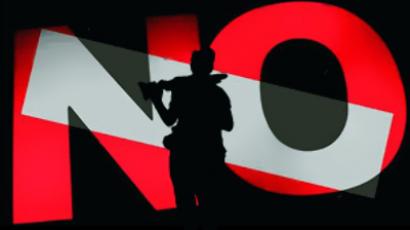Daughter of Iraqi diplomats adopted in Russia
A young Iraqi girl, thought to be the daughter of Iraqi diplomats, has found a foster family in Russia.
Zoya, the Russian name she’s now called, doesn’t know her real mum and dad. She and seven other Iraqi infants were brought to Moscow from Baghdad a few days before the start of the US-led offensive in 2003. No papers, no explanations – just a plea to look after them for a few months.
“These eight infants were brought on the last plane from Baghdad. The Iraqi ambassador said they were the children of diplomats. He asked us to look after them for a few months until the war was over,” recalls Aleksey Mitrofanov, a former State Duma deputy and now the girl’s adoptive father.
Zoya is now six years old, but so far nobody has claimed her. She lives with the Mitrofanov family, holds a Russian passport and doesn’t know a word of Arabic. But she’s much better off than many Iraqi children who never had the opportunity to swap their heritage for safety.
“Knowing how Iraq operated and how this last flight was controlled, we can assume that the decision to bring these kids here was taken at the highest level. I wish they told us to whom these children belong. But, on the other hand, it’s sometimes better not to know,” Mitrofanov says.
Six years of war
In February 2003 when Zoya was born, the world was seething with anti-war rallies. From Washington to Moscow to Tokyo, millions took to the streets to say ‘no’ to the invasion – the largest protest in history, according to Guinness World Records.
Zoya is still too young to understand that she luckily escaped the fate of around a million Iraqis killed in the conflict. But she is one of the five million displaced people who’ve lost their homes.
Salam Al-Obaidy’s family fled Saddam’s regime in 1979. His father, a persecuted public figure, found refuge in the Soviet Union but the family never abandoned hope of going back.
In 2003, Salam was among the first journalists to travel to Baghdad – not only to report but also to see whether the time was right to return.
“When Saddam’s regime was brought down, we truly thought the time was right to go back. My parents went to Baghdad to do some renovations on our home. But by summer of 2004 when the terrorist attacks intensified, when Iraqis started killing each other, all our hopes were lost. My parents had to go back to Russia,” Salam says.
Six years after the invasion, most hopes have turned into bitter disenchantment. With more that 4,000 US soldiers killed and over $ US 600 billion spent, Washington is under increasing pressure find a way out.
Despite President Obama’s promise of a pull-out by next year, some Russian analysts believe security in Iraq will remain a challenge for years to come. Andrey Sushentsov from the Moscow Institute of International Relations believes violence will still be present in Iraq by the end of Obama’s term.
When it comes to Iraq, Russia and the United States have never seen eye to eye. Both had commercial and political interests that ran counter to each other.
But six years of war have drained their antagonism. After vehemently opposing the US-led invasion, Moscow is strongly in favour of Washington’s plans to get troops out of Iraq. Only then, Russian officials say, the operation ‘Iraqi Freedom’ will live up to its name.













